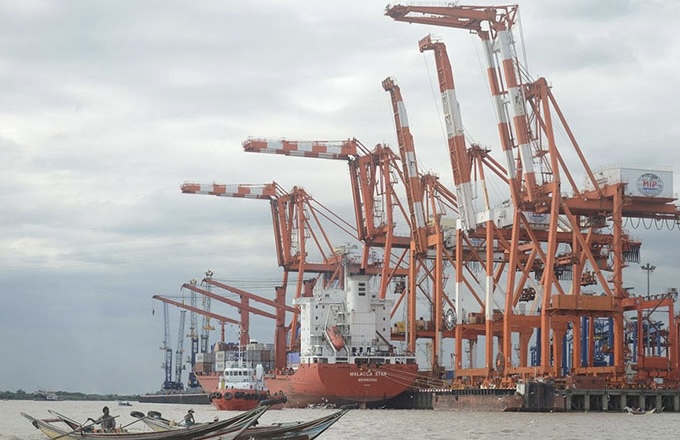KEY POINTS
- Russia and Myanmar signed a deal for a port and oil refinery.
- The agreement strengthens Russia’s energy and economic ties with Myanmar.
- The projects could boost trade and industrial growth in Myanmar.
Russia and Myanmar have signed a memorandum of investment cooperation, outlining plans for large-scale infrastructure projects, including the construction of a port and an oil refinery in the Dawei Special Economic Zone.
The agreement was signed during a visit by a Russian delegation to Myanmar, with Russian Minister of Economic Development Maxim Reshetnikov and Myanmar’s Minister for Investment and Foreign Economic Relations Kan Zaw leading the discussions.
According to Reshetnikov, the memorandum covers multiple infrastructure and energy projects, including a coal-fired power plant.
However, he noted that while Myanmar has expressed strong interest in building an oil refinery, Russian companies are still assessing its economic feasibility.
“The refinery is the most complex element of the plan, and no final decision has been made yet,” he stated.
The Dawei Special Economic Zone spans approximately 196 square kilometers along the Andaman Sea.
It is expected to serve as a key hub for industrial, transport, and technology activities, potentially boosting Myanmar’s economic growth.
Russia expands energy cooperation with Myanmar
Since Myanmar’s military coup in 2021, Russia has become one of its closest allies, increasing economic and energy partnerships with the Southeast Asian nation.
Moscow and Naypyidaw have been discussing deeper collaboration in the energy sector, including Russia’s role in constructing a gas pipeline to Myanmar’s largest city, Yangon.
In addition to the Dawei projects, Russia has also expressed interest in developing a nuclear research reactor in Myanmar, further solidifying its presence in the country’s energy landscape.
Myanmar’s government sees these partnerships as crucial to reducing reliance on Western economic ties and attracting investment for critical infrastructure projects.
According to Reuters, Russian officials emphasized that energy cooperation between the two nations will continue to evolve.
“Myanmar is strategically positioned in the region, and we see great potential for long-term collaboration,” Reshetnikov added.
Strategic and economic implications of the deal
Myanmar’s industrial capacity development and infrastructure modernization strategy matches the content presented in the investment memorandum.
Moving forward with the planned initiatives will create a new Dawei port that enhances regional trading links, while building an oil refinery plant for decreased petroleum imports.
The execution of these developments will succeed based on multiple conditions such as funding support, stable political conditions and international restrictions on Myanmar’s military leadership.
Russian firms need to complete economic assessments before they can finalize their investment decision in the refinery.
The deal illustrates how Russia maintains its regional dominance in Southeast Asia, by providing Myanmar with another option for economic growth despite its existing political disputes with Western governments.
As discussions progress, both nations will establish additional aspects about funding arrangements and construction schedules.



